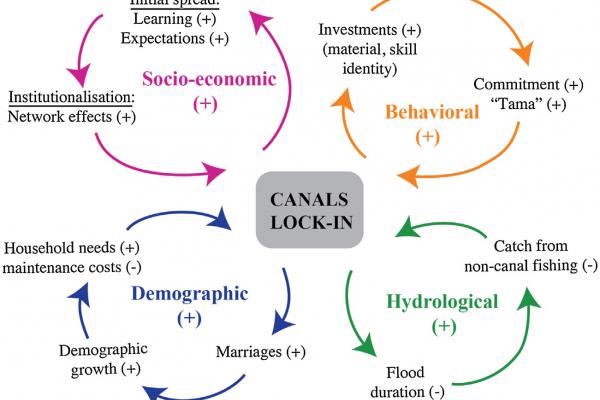Paper in Global Environmental Change

A new paper from our MORSL lab is out in Global Environmental Change. Sarah Laborde, Alfonso Fernandez, Sui Chian Phang, Ian M. Hamilton, Nathaniel Henry, Hahn Chul Jung, Aboukar Mahamat, Mouazamou Ahmadou, Bruno Labara, Saidou Kari, Michael Durand, Bryan Mark, Ningchuan Xiao, Roland Ziebe and Mark Moritz. 2016. Social-ecological feedbacks lead to unsustainable lock-in in an inland fishery. Global Environmental Change, 41 (November 2016):13-25.
Here is the abstract: This interdisciplinary paper presents an empirical analysis of techno-institutional lock-in in a regional fishery, in the Logone floodplain in the Far North Region of Cameroon. In the Logone floodplain, one fishing technique is spreading exponentially even though it is changing the social, hydrological and ecological dynamics of the system in ways that are largely considered problematic by local communities. We use a complex systems framework to analyze large hydrological and socio-economic datasets. Results show how social-ecological feedbacks foster the spread of the technique and contribute to the process of lock-in. The lock-in leads to a resistance to change despite awareness of the technique’s impact, a situation that may also be described as a social-ecological trap. We identify and explain four kinds of positive feedback loops relating to socio-economic, behavioral, demographic and hydrological processes, respectively. We also identify possible solutions that consider the complexity of the feedback loops across multiple dimensions of the floodplain system.
